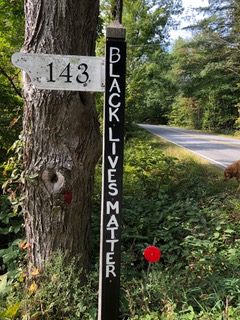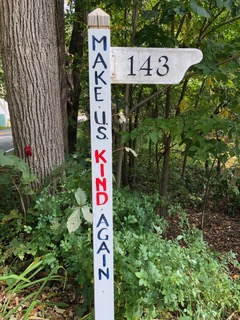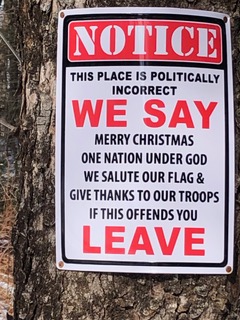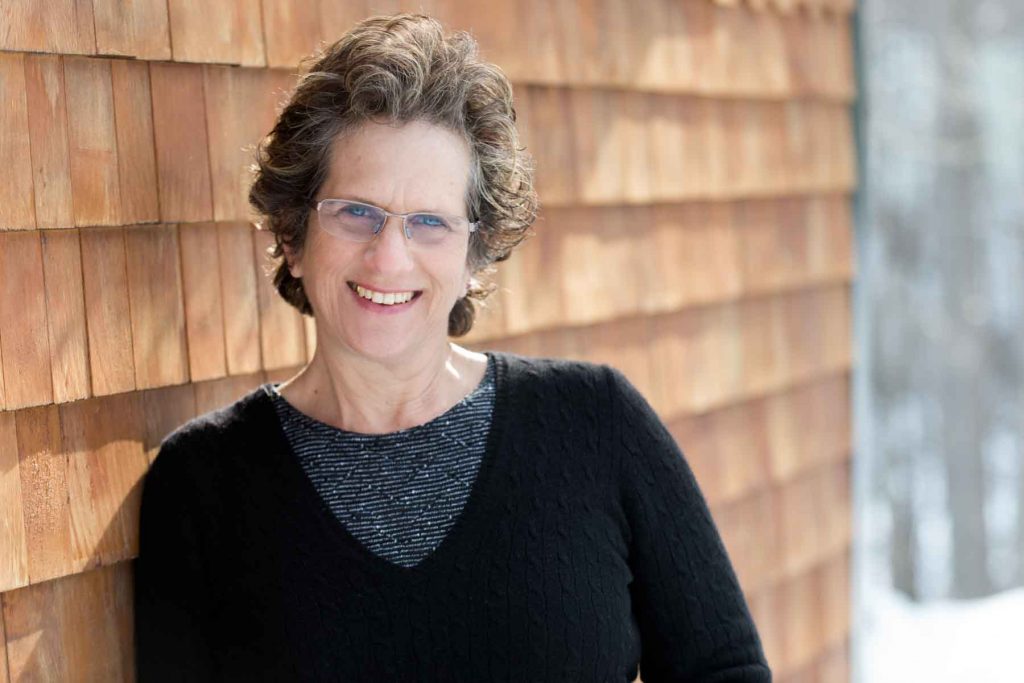
I’ve recently raised signs at the entrance to my house to show all passersby that I stand in solidarity with Black Americans. I’m simultaneously standing with white Americans who, like me, have been awakened to how our national, financial, housing, cultural and educational policies have all benefited white people more than any others. And not just any white people, but me.
Inherited White Privilege
My father, a white veteran of World War II, easily accessed the GI bill to finish his college education and attend graduate school. As a white veteran, he qualified for a low-interest mortgage to purchase the house in which I grew up, a house located within walking distance of the well-resourced public schools my brothers and I attended. And that’s not even the beginning. Like most Americans of European descent, my ancestors all chose to come to America; none of them was physically enslaved. Sure, they came to escape prejudice and poverty, and after arriving in the United States they still experienced some. But they passed for white, which made it easier for them to be upwardly mobile in New York City during the beginning of the Twentieth Century than it was for American Blacks migrating from southern states during the Great Migration at the same time.

I’ve never applied a sign in support of a specific candidate on my car or my lawn. Driving a Prius with Vermont plates is statement enough. It was certainly enough the time two young men tailgating me in a large pick-up in rural Massachusetts ran me off the road. No wonder I’ve been afraid to post a sign at the entrance to my driveway. I don’t want to invite reprisal. But if I feel mildly unsafe, imagine how Black people feel in this mostly white state.
Signs Upon the Gates and Doorposts
I’m Jewish, but not particularly observant. I’ve never lived in a home with a mezuzah, a small case containing verses from Deuteronomy that practicing Jews affix to the “gates and doorposts” of their house. A few years ago, my children gave me a beautiful one I have yet to hang up.
Black Lives Matter & Make US Kind Again
Instead, I’ve painted and affixed two signs to the gateposts to my driveway. One says, “Black Lives Matter”; the other, “Make US Kind Again.” By overcoming my own discomfort with hanging such signs, I am signaling where I stand to passersby. Both are welcoming messages, and differ significantly from that of neighbors who have posted a sign at the end of their drive that reads: “Notice: This place is politically incorrect. We say Merry Christmas, One Nation Under God. We Salute Our Flag & Give Thanks to Our Troops. If This Offends You: Leave” (punctuation added).

First Amendment Rights
Every time I walk by this sign, I’m saddened that neighbors exercising their First Amendment right to free speech are using it to suggest those who disagree should leave the country rather then exercise their own right to speak out. So even though I feel vulnerable to hate speech by planting my signs, I have done so because I think it’s the right thing to do, and I live in a country where I’m not required to follow any particular religion and I’m allowed speak my dissent.
Painting the two signs that now adorn the entrance to my drive has forced me to reconsider the value of proclaiming one’s beliefs to the street. In fact, I’m going to hang that mezuzah on the doorpost of my house. I love my country for its Constitution, with its Bill of Rights, including the First Amendment, which grants me both freedom of religion and freedom of speech.

Written to educate, provoke, and entertain, Living in Place is where I publish essays about the human condition. Please subscribe to receive essays by email. Thank you for supporting my independent, non-commercial voice

thank you
Hello from Australia 👋.
We constantly receive news from the US, particularly of your president, so it’s interesting to read the views of an “ordinary” citizen. I confess I feel only despair when I see what is happening there and feel glad to live here, except that much of what your president does affects us all. I sincerely hope he is voted out and that the US can start to become a more peaceful, tolerant, and welcoming place for all.
We have state elections coming up in the next month and I did consent to a Greens candidate sign on my front fence. This electorate is a very tolerant, progressive one, but I do feel a little vulnerable publicly voicing my support. But if we all remain silent about things that we believe in there can be no change.
Bravo for standing up for your beliefs and I wish all of the US a positive outcome in November.
Deb, thank you for passing along this timely blog.
…and I just bought your novel 🙂
Deborah Laskin’s, I’m tremendously impressed and happily enthusiastic to know so many of my friends and online contacts are becoming aware/woke of social issues that were never discussed, written, or given notice in the American education system.
I’m a father of a bi-racial son and an African-American daughter who are adults and were born and raised in the State of Virginia.
Until this past January, the state of Virginia celebrated the losing generals of the civil war with a paid state holiday.
We are all American citizens, and I’m ashamed of our past. So, I understand how many white-historians did not want to write about American history’s real horrors, let alone provide the information for any education curriculum.
The German Government and Europe teaches the details of the Jewish Holocaust with visits to the concentration camps.
The American education system should be mandated to teach the factual truth of America’s History with all of its horrors committed upon the indigenous people and the degrading indignities of slavery from pre-school into Universities and Colleges.
Learning America’s history will build and develop empathy to understand our past’s horrors, allowing our children to learn from our past to live a peaceful future.
Thank you for your BLM display and learning historical the historical legacy of American Histoty. The Southern Poverty Law Center has a podcast titled “Sounds Like Hate,” and its recent program talked about Randolf VT. Check it out with the link. https://www.soundslikehate.org
You have written a really great blog post Deborah, 🙂
M. J Leake
Thank you for yet again posting a thoughtful piece, and I love the signs, particularly the Make U.S. Kind Again sign.
Well Done!
Deborah,
I can only echo what everyone else has said. Good for you.
Jane
and the second amendment is pretty darn nice and important also